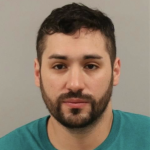WASHINGTON, D.C. – U.S. Congressman Frank A. LoBiondo (NJ-02), Chairman of the House Aviation Subcommittee, on June 22 joined with House Transportation & Infrastructure Committee Chairman Bill Shuster (PA-09) in introducing a six-year authorization of Federal Aviation Administration (FAA) authorities and programs.
“The problem is clear: while the U.S. continues to have the safest aviation system in the world, we do not have the most efficient or effective system for future growth. The bipartisan legislation introduced today is intended to modernize and transform our aviation system much like 60 other nations have and incorporates recommendations from stakeholders across the U.S. aviation system,” said LoBiondo, Chairman of the House Aviation Subcommittee. “I share in the goal of strengthening our aviation system to meet 21st century demands while ensuring our FAA Technical Center has a leading role in this effort. To be absolutely clear, protecting the work of the FAA Technical Center and its employees has been and continues to be my top priority. I look forward to the continued discussion of how to modernize our aviation system.”
Some of the specific research programs in which the FAA Technical Center would be expected to have a role in executing are as follows:
Section 90501 Safety Oversight and Regulation of Corporation – FAA to prescribe performance-based regulations and minimum safety standards for the operation of air traffic services.
Sec. 45506. – Certification of New Air Navigation Facilities for Unmanned Aircraft and other Aircraft – FAA to establish procedures for issuing air navigation facility certificates for operators of Unmanned Traffic Management (UTM) for unmanned aircraft operations.
Sec. 433. Unmanned Aircraft Test Ranges – FAA to develop and permit flights of unmanned aircraft equipped with sense-and-avoid and beyond line of sight systems.
Sec. 440. Update of FAA Comprehensive Plan – FAA to develop a concept of operations for the integration of unmanned aircraft into the national airspace system.
Sec. 601. Review of FAA Strategic Cybersecurity Plan – FAA to review the comprehensive and strategic framework of the FAA’s cybersecurity principles and policies.
Sec. 604. Aviation Fuel – FAA shall determine that an unleaded aviation gasoline qualifies as a replacement and identifies the aircraft and engines that are eligible for use.
In addition to reauthorizing the FAA, the bipartisan “Aviation Innovation, Reform & Reauthorization (AIRR) Act” would establish an independent non-profit to manage and update the air traffic control (ATC) services; establish a stable, self-sustaining funding source using a cost-based user fee structure to redirect current taxes into the aviation system and reinvest surplus revenues; and, remove ongoing air traffic modernization efforts – NextGen – from the federal procurement system.
If enacted, this bipartisan legislation would impact current operations at the FAA Technical Center in South Jersey after a three (3) year transition period. LoBiondo included provisions into the AIRR Act that would ensure the Technical Center research, employees and physical property were protected through and beyond the transition period. The actual bill language LoBiondo included are as follows (bolded for emphasis):
Transition Team (Page 94 & 95):
(a) TRANSITION TEAM.—Not later than 120 days after the date of enactment of this subtitle, the Secretary, after meeting and conferring with the CEO or Interim CEO, shall establish a transition team to develop, consistent with this subtitle, a transition plan to be reviewed by the Secretary and, if approved, utilized by the Department of Transportation during the period in which air traffic services are transferred from the FAA to the Corporation.
(b) MEMBERSHIP.—The transition team shall consist of 12 individuals, who are citizens of the United States, as follows:
(1) 5 representatives appointed by the Secretary, including—
(A) the Deputy Administrator of the FAA;
(B) the Director of the FAA Mike Monroney Aeronautical Center;
(C) the Director of the FAA William J. Hughes Technical Center; and
(D) 2 representatives from the Office of Management and Budget,
appointed with the concurrence of the Director of the Office of Management and Budget.
(2) 1 representative appointed by the exclusive bargaining representative of air traffic controllers certified under section 7111 of title 5.
(3) 1 representative appointed by the exclusive bargaining representative for aviation safety inspectors certified under section 7111 of title 5.
(4) 5 representatives appointed by the CEO.
Reversionary Interest (Page 91):
(3) REVERSIONARY INTEREST.—Any conveyance of real property under this section located at an FAA technical facility shall be subject to the condition that all right, title, and interest in the real property shall revert to the United States and be placed under the administrative control of the Secretary if—
(A) the Corporation determines the real property is no longer necessary to carry out the air traffic services transferred to the Corporation under this subtitle; and
(B) the Secretary determines the reversion is necessary to protect the interests of the United States.
Use of Federal Technical Facilities (Page 163):
(a) IN GENERAL.—The Administrator of the Federal Aviation Administration shall make Administration technical facilities available to the American Air Navigation Services Corporation for air traffic control research and development projects.
(b) COOPERATIVE AGREEMENT.—
(1) IN GENERAL.—To ensure the safe transition of air traffic services, not later than 180 days prior to the date of transfer (as defined in section 90101(a) of title 49, United States Code, as added by this Act), the Administrator shall enter into an agreement with the American Air Navigation Services Corporation, for a period of not less than 5 years, concerning services that could be provided at the Federal Aviation Administration technical center, including the integrated air traffic control laboratories.
Additional Technical Center-specific language is being drafted by LoBiondo for inclusion into the legislation as the process proceeds through committee and to the House floor.
Leading up to the introduction the Aviation Subcommittee conducted more than 150 industry stakeholder meetings and eight hearings to examine every aspect of the U.S. aviation system. The full House Transportation & Infrastructure Committee is scheduled to mark-up the AIRR Act on Tues., June 27.







